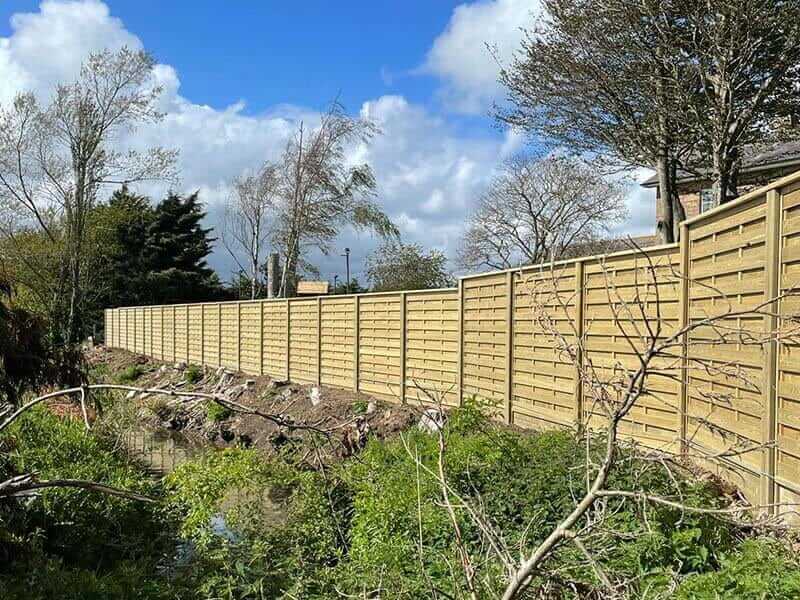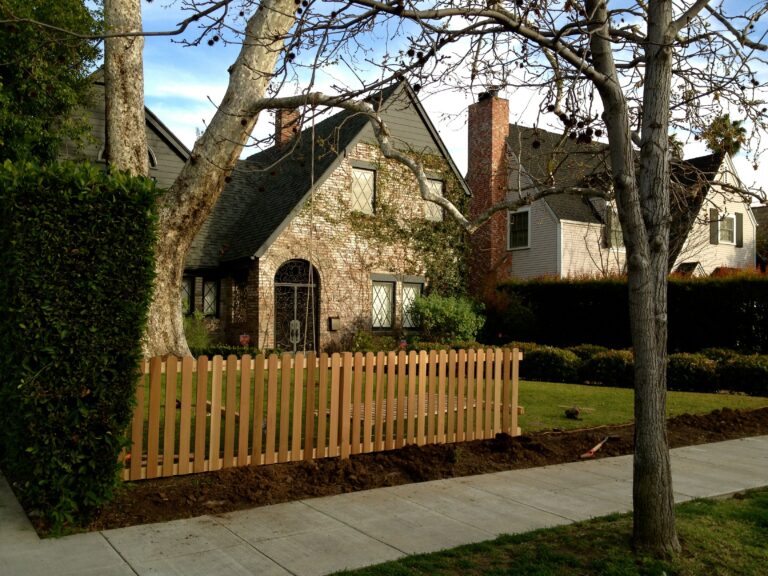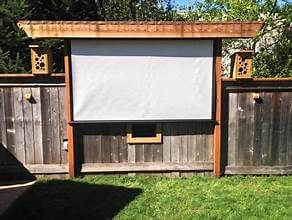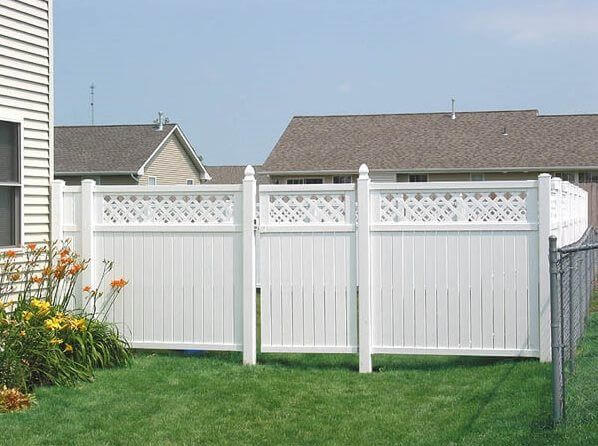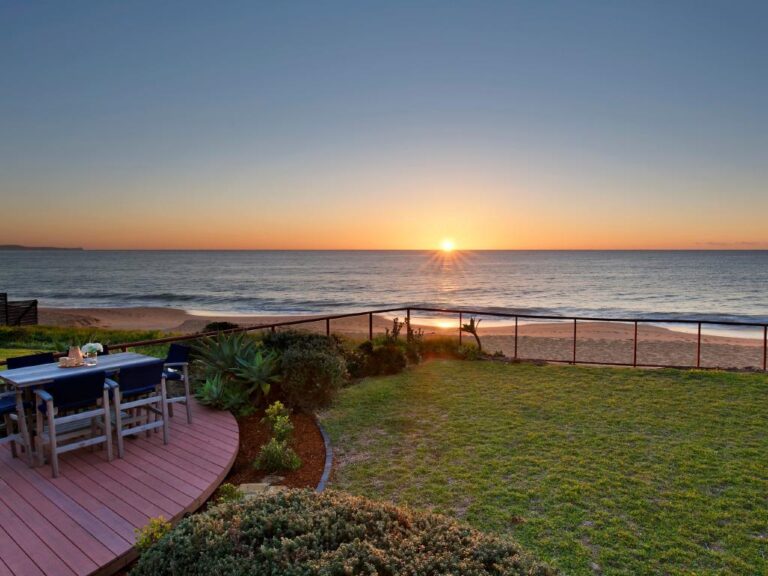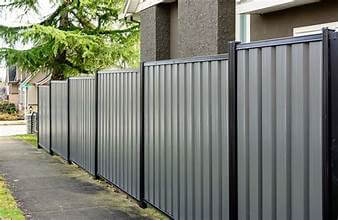When choosing fencing for coastal climates, consider materials like vinyl, aluminum, or stainless steel for durability against saltwater and strong winds. These materials are resistant to corrosion and can withstand harsh coastal conditions, making them ideal choices for coastal fencing.
Living in a coastal area brings many benefits, such as beautiful views and fresh ocean air.
However, it also presents unique challenges when it comes to home maintenance, including choosing the right fencing.
The salty and humid air in coastal climates can cause rapid deterioration and corrosion of traditional fencing materials.
Therefore, it is crucial to select fencing that can withstand harsh conditions while adding aesthetic appeal to your coastal property.
We will explore valuable tips for choosing the most suitable fencing for coastal climates, ensuring both durability and visual appeal for your home.
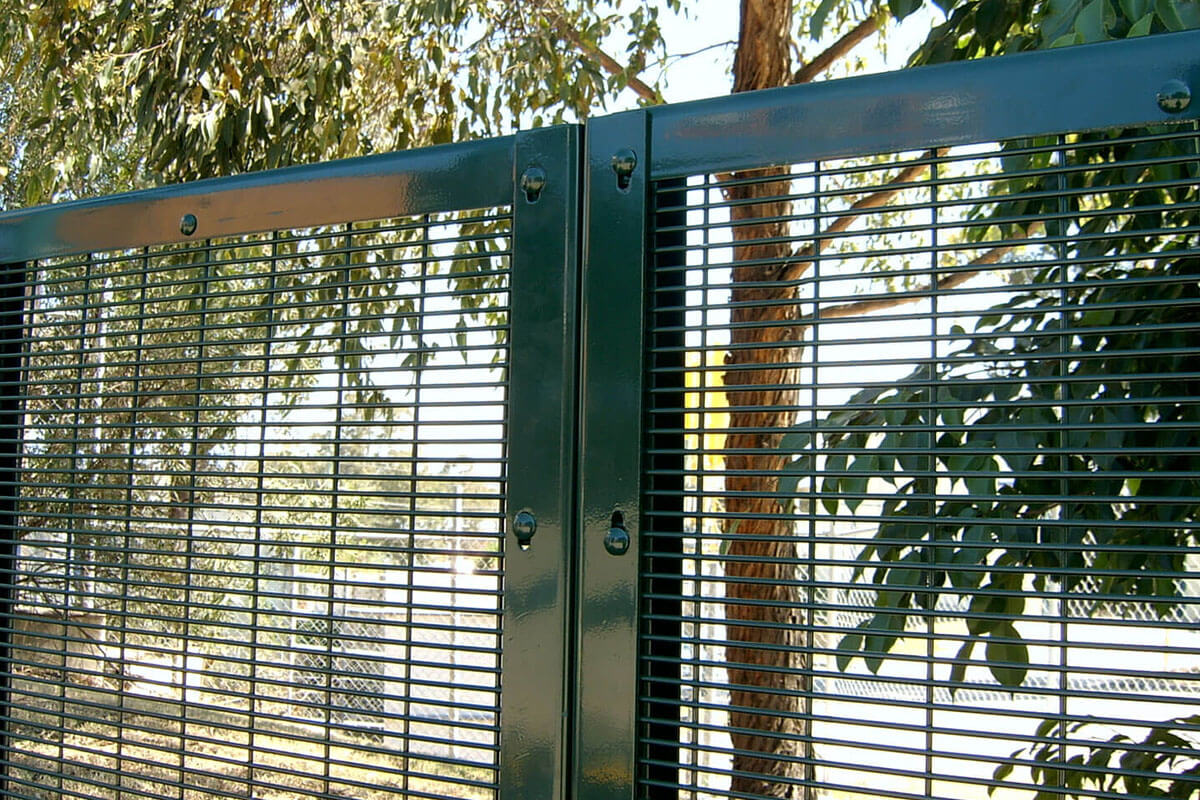
Understanding The Coastal Climate
Coastal climates present unique challenges for fencing selection. It is crucial to consider materials that can withstand high humidity and salt exposure.
For homeowners in the San Mateo area, it’s vital to consult with local experts who understand these unique conditions.
Seeking Fence Installation in San Mateo, California ensures access to a range of materials and designs that are specifically suited to withstand the coastal environment.
By choosing a provider experienced in navigating these challenges, you can ensure that your fence is not only aesthetically pleasing but also durable and long-lasting.
Opt for durable options like vinyl, aluminum, or stainless steel to ensure longevity in coastal environments.
Impact of saltwater and high humidity
The impact of saltwater and high humidity on fencing materials cannot be overstated. The combination of saltwater and high humidity can accelerate corrosion, leading to premature deterioration of traditional fencing materials.
Saltwater exposure can cause rapid deterioration of metal fencing, while the high humidity can speed up the decomposition of wood and other organic materials.
Therefore, it is imperative to select fencing materials that are resistant to corrosion and can withstand the corrosive effects of the coastal climate.
Corrosion-resistant materials
When selecting fencing for coastal climates, it is essential to consider corrosion-resistant materials that can withstand harsh conditions.
Materials such as stainless steel, aluminum, and vinyl are known for their resilience against corrosion.
Stainless steel and aluminum are excellent choices for metal fencing due to their inherent resistance to rust and corrosion.
Vinyl fencing, on the other hand, is a popular option for coastal areas due to its high resistance to moisture and saltwater, making it an ideal choice for withstanding the coastal climate.
By understanding the impact of saltwater and high humidity and selecting corrosion-resistant materials, you can ensure that your coastal fencing remains durable and aesthetically pleasing for years to come.
Factors To Consider
When choosing fencing for coastal climates, it’s important to consider several factors to ensure that the fencing is both durable and able to withstand the unique challenges posed by coastal environments.
Factors such as durability and longevity, as well as maintenance requirements, play a crucial role in selecting the right fencing for coastal areas.
Durability And Longevity
Coastal climates can expose fencing to harsh conditions, including saltwater, high winds, and intense sunlight.
Therefore, selecting a fencing material that is highly durable and has a long lifespan is crucial.
Vinyl, aluminum, and composite materials are popular choices for coastal fencing due to their resistance to corrosion and ability to withstand the elements.
Maintenance Requirements
Coastal environments can accelerate the wear and tear on fencing, making maintenance an essential consideration.
Opting for low-maintenance materials such as vinyl or aluminum can reduce the need for frequent upkeep.
Additionally, selecting a powder-coated finish can provide an extra layer of protection against corrosion, reducing the maintenance required to keep the fencing looking its best.
Complementing The Coastal Surroundings
When choosing fencing for coastal climates, it’s important to consider how the structure will complement its natural surroundings.
Coastal landscapes are characterized by their stunning views of the water, sandy beaches, and lush vegetation.
To ensure that your fencing blends seamlessly with the coastal environment, there are several key factors to keep in mind.
Blending With Natural Landscape
In coastal areas, the natural landscape is often a striking combination of sea, sand, and vegetation.
To complement this unique setting, opt for fencing materials that harmonize with the surrounding elements.
Wooden fences, for example, can lend a warm and organic feel to coastal properties, blending well with the nearby dunes and driftwood.
Alternatively, bamboo fencing can create a tropical ambiance that mirrors the lush greenery found in coastal regions.
Choosing Colors And Styles
When selecting a fence for a coastal property, consider the color and style choices that will best enhance the coastal aesthetic.
Soft, natural tones such as beiges, whites, and light grays can evoke the calming colors of the beach, while weathered finishes can add a touch of coastal charm to the structure.
Additionally, natural materials like stone or wrought iron can infuse a coastal fence with a sense of timeless elegance that complements the surrounding environment.
Privacy And Security
When considering fencing options for coastal climates, prioritizing privacy and security is crucial.
The right fencing not only enhances the aesthetics of your property but also provides a sense of safety and seclusion from the coastal elements.
Here are some factors to consider when choosing fencing with privacy and security in mind:
Balancing Openness And Protection
Coastal areas often offer breathtaking views and mild climates, making homeowners desire openness while maintaining protection.
Look for fencing materials that provide a balance between allowing light and air to pass through while ensuring security and privacy.
Choosing Appropriate Height And Spacing
Balancing the height and spacing of the fence is essential to achieve an optimal level of privacy and security.
Taller fences offer more privacy, whereas carefully spaced slats or panels can prevent unauthorized access to your property while still allowing visibility and airflow.
Professional Installation
Professional installation is crucial when it comes to choosing fencing for coastal climates.
Installing a fence in a coastal area requires specific expertise and knowledge of the environmental factors that can impact the durability and reliability of the fence.
In this section, we will discuss the importance of hiring experienced coastal fencing installers and ensuring proper foundation and anchoring for your coastal fencing.
Hiring Experienced Coastal Fencing Installers
When considering fencing options for coastal climates, it is essential to enlist the services of experienced coastal fencing installers.
Coastal areas bring unique challenges such as saltwater exposure, strong winds, and corrosive elements that can affect the longevity and performance of the fence.
Experienced installers are well-versed in these challenges and can recommend the most suitable materials and installation techniques to withstand the coastal environment.
Ensuring Proper Foundation And Anchoring
Proper foundation and anchoring are critical elements for coastal fencing due to the harsh conditions posed by coastal climates.
The foundation should be deep enough to withstand erosion and shifting caused by high winds and intense weather conditions.
Anchoring the fence securely will prevent it from being damaged or dislodged during storms or high tides.
Ongoing Maintenance
Living in a coastal climate brings unique challenges for maintaining fencing. Ongoing maintenance is crucial to ensure the longevity and durability of your fence.
The combination of salt, moisture, and wind in coastal areas can lead to accelerated wear and tear, making it essential to implement a thorough and regular maintenance routine for your fence.
Here are some important aspects to consider when it comes to ongoing maintenance in coastal climates:
Cleaning And Rust Prevention
To combat the corrosive effects of coastal elements, regular cleaning is essential. Use a mild detergent and water to remove salt and grime from the fence surface.
For metal fences, applying a protective sealant or rust-resistant paint can provide an additional layer of defense against corrosion.
This routine maintenance not only keeps the fence looking pristine but also prevents rust and deterioration caused by salt exposure.
Regular Inspections And Repairs
Frequent inspections are crucial to catch any signs of damage early. Check for loose boards or panels, rust spots, and weak points in the fence structure.
Addressing any issues promptly helps prevent minor concerns from escalating into major repairs.
In coastal climates, it’s particularly important to inspect the fence after storms or extreme weather events, as these can accelerate wear and tear.
Be proactive in replacing damaged components and conducting necessary repairs to maintain the structural integrity of the fence.
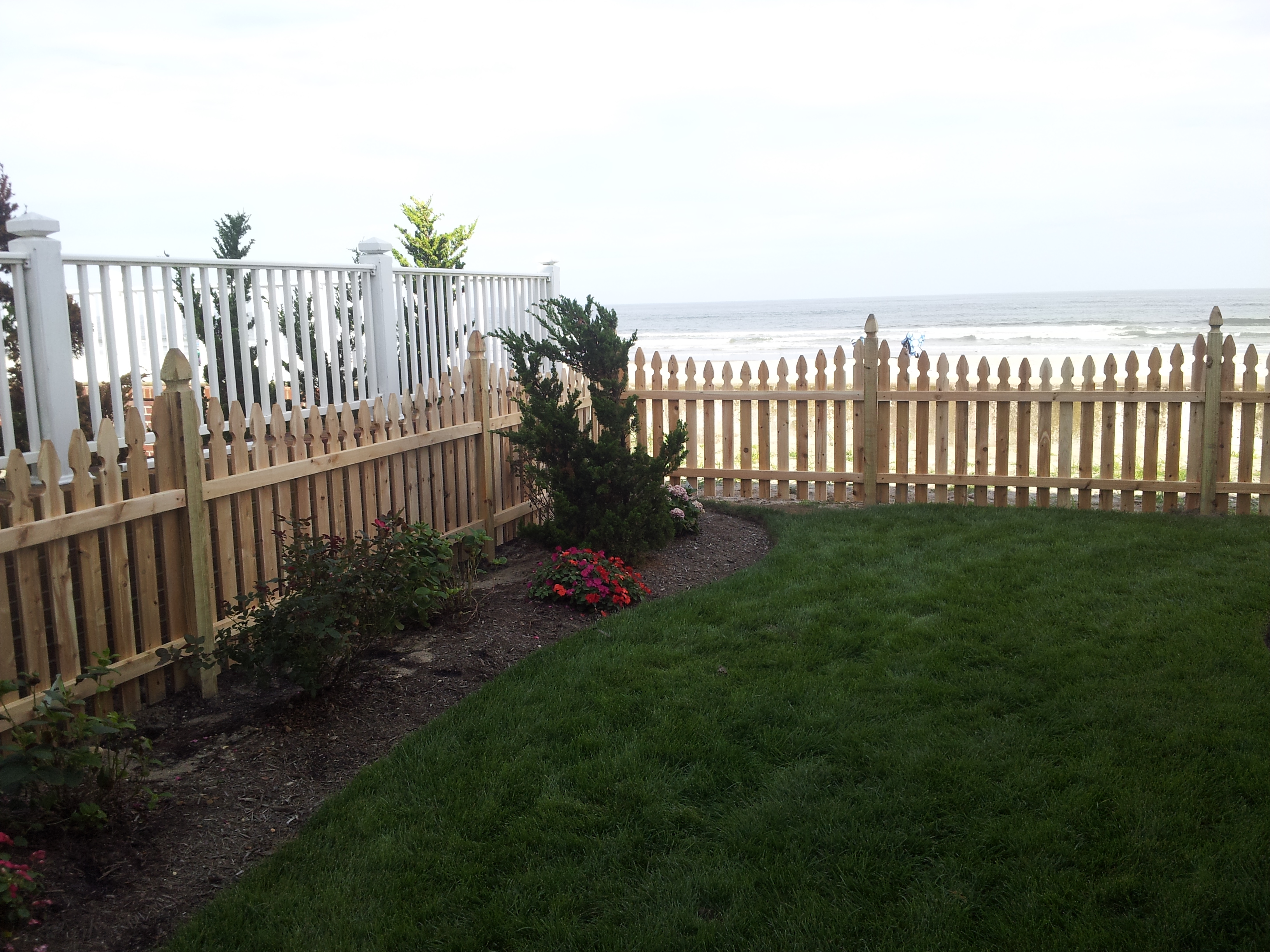
Frequently Asked Questions
What Are The Best Fencing Materials For Coastal Climates?
In coastal climates, it’s best to choose fencing materials like vinyl or aluminum that are resistant to corrosion and can withstand salt spray.
How Can I Protect My Coastal Fence From Rust And Corrosion?
To protect your coastal fence from rust and corrosion, consider using rust-resistant materials like stainless steel or applying a protective coating.
What Design Features Should I Consider For A Coastal Climate Fence?
For coastal climates, consider a fence design with minimal gaps to reduce salt and debris buildup, and opt for a sturdy construction to withstand strong winds and salt exposure.
Conclusion
Choosing the right fencing for coastal climates is crucial for durability and longevity. By considering factors such as material, maintenance, and resistance to salt and moisture, you can ensure that your fence will withstand the harsh coastal environment.
With careful planning and the right considerations, you can enjoy a beautiful and resilient fence that enhances your coastal property for years to come.

